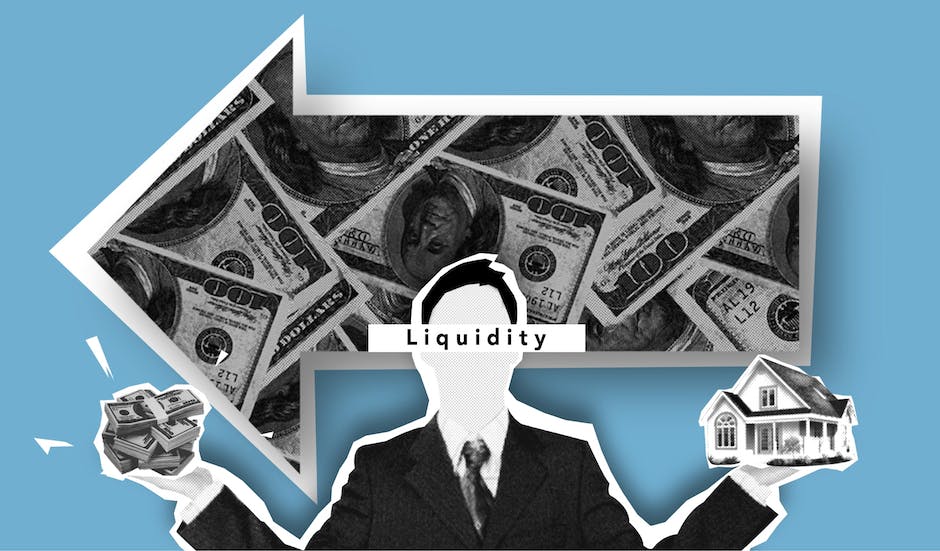
With the constantly evolving landscape of commercial real estate, understanding the intricacies of financing is crucial for any aspiring investor or business owner. Whether you are looking to purchase, renovate, or expand a property, having a solid understanding of commercial real estate financing options is the key to unlocking your success.
In this comprehensive guide, we will delve into the fundamentals of commercial real estate financing, providing you with an A-Z knowledge that will empower you in your financial decision-making journey. From traditional loans to alternative financing methods, we will explore various avenues for securing capital tailored specifically for commercial real estate projects.
Navigating through complex financial terms and jargon can be daunting, but fear not! We will break down the essential concepts and explain them in a simple and concise manner. By the end of this guide, you’ll be equipped with the knowledge to discuss commercial real estate financing confidently and make informed decisions that align with your business goals.
Furthermore, we will shed light on the critical factors that lenders consider when evaluating commercial real estate loans such as creditworthiness, property viability, and projected returns. Understanding these factors will enable you to present a compelling loan application and increase your chances of securing favorable terms.
Additionally, we will explore the different types of commercial real estate financing available in the market. From traditional bank loans to government-backed programs and private equity investments, we will provide insights into each option’s pros, cons, and specific use cases. Armed with this information, you will be able to choose the financing method that best suits your individual needs and circumstances.
Lastly, we will discuss the importance of engaging with qualified professionals throughout the financing process. From mortgage brokers to commercial real estate attorneys, assembling a trusted team can help streamline the financing journey and ensure compliance with legal and regulatory requirements.
So, whether you are a seasoned investor seeking to expand your portfolio or a business owner looking to acquire your first commercial property, this guide will serve as your go-to resource.
Explanation of what commercial real estate financing is and why it is important

Commercial real estate financing plays a crucial role in the world of business. It refers to the process of securing funding for the purchase, development, or refinancing of commercial properties, such as office buildings, retail spaces, industrial facilities, and multi-unit residential properties.
Unlike residential real estate, commercial properties tend to have higher price tags and more complex financial requirements. This is where commercial real estate financing comes into play, providing the necessary capital to acquire or develop these properties.
Here are some key reasons why commercial real estate financing is important:
1. Expansion Opportunities: Access to financing allows businesses to expand their footprint by acquiring new properties or expanding existing ones. This growth can provide additional revenue streams, accommodate increasing operational needs, and attract more customers.
2. Competitive Advantage: In highly competitive industries, owning or leasing prime commercial real estate can provide a significant advantage. Access to financing can help businesses secure coveted locations, establish a strong presence, and differentiate themselves from competitors.
3. Asset Appreciation: Commercial real estate has the potential to appreciate in value over time, presenting an attractive investment opportunity. Financing enables businesses to acquire these assets, benefitting from potential long-term value appreciation and capital gains.
4. Income Generation: The rental income generated through commercial properties can be a steady source of cash flow for businesses. By securing financing, businesses can acquire income-generating assets, diversify their revenue streams, and enhance their overall financial stability.
5. Mitigate Risk: Commercial real estate financing can also provide a means to mitigate risk. By leveraging financing options, businesses can avoid tying up all their capital in one property, reducing exposure to market fluctuations and potential downturns.
6. Tax Benefits: Financing commercial real estate can provide tax benefits for businesses. Interest payments on commercial loans are generally tax-deductible, reducing the overall tax burden and increasing the cash flow available for other business needs.
It is important to note that commercial real estate financing options may vary based on factors such as property type, location, and borrower qualifications. Different financing options include traditional bank loans, commercial mortgages, Small Business Administration (SBA) loans, commercial bridge loans, and crowdfunding platforms.
In conclusion, commercial real estate financing is a vital component of business growth and expansion. It allows businesses to acquire, develop, or refinance commercial properties, providing opportunities for expansion, generating income, reducing risk, and taking advantage of potential asset appreciation. Understanding the various financing options available can empower businesses to make informed decisions and maximize the benefits offered by commercial real estate investments.
Overview of the topics covered in the blog post

In this comprehensive guide, we will explore the vast world of commercial real estate financing from A to Z. Whether you are a seasoned investor or just starting out in the industry, understanding the various financing options available is crucial for success in the commercial real estate market.
We will begin by taking a closer look at the different types of commercial properties that can be financed. From office buildings and retail spaces to industrial facilities and multi-family residential units, each property type comes with its unique set of financing considerations.
Next, we will delve into the various financing options available to commercial real estate investors. This will include traditional bank loans, government-backed loans, private equity, crowdfunding, and more. We will explore the advantages and disadvantages of each option, helping you make an informed decision based on your specific needs and circumstances.
Building on that, we will also discuss the financial requirements for commercial real estate financing. This will involve understanding the loan-to-value ratio, debt service coverage ratio, and other key financial metrics that lenders evaluate when considering a loan application. By familiarizing yourself with these requirements, you can enhance your chances of securing the financing you need for your commercial property.
Furthermore, we will explore the role of due diligence in commercial real estate financing. This involves conducting thorough research and analysis to assess the viability of a commercial property and mitigate risks. We will provide you with a step-by-step approach to conducting due diligence, including evaluating market conditions, analyzing property performance, and assessing the potential for future growth.
In addition, we will address the importance of building relationships with lenders and establishing a strong credit profile. This will involve tips and strategies for improving your credit score, as well as guidance on how to effectively communicate with lenders and present yourself as a reliable borrower.
Lastly, we will touch on some current trends and emerging technologies in commercial real estate financing. From the rise of online lending platforms to the adoption of blockchain technology, staying up-to-date with these trends can give you a competitive edge in the market.
By the end of this guide, you will have a comprehensive understanding of commercial real estate financing, enabling you to navigate the complexities of the industry with confidence.
Types of Commercial Real Estate Loans (2)

Commercial real estate loans are essential for businesses looking to purchase or refinance properties for their operations. Understanding the different types of commercial real estate loans available is crucial for making informed financing decisions. In this section, we will explore two common types of commercial real estate loans: traditional bank loans and Small Business Administration (SBA) loans.
Traditional Bank Loans:
Traditional bank loans are often the first option considered by business owners for financing commercial real estate. These loans are provided by banks or financial institutions and come with various terms and conditions, usually based on the borrower’s creditworthiness and the property’s value.
1. Intermediate-Term Loans: Intermediate-term loans are commonly used for commercial real estate purchases or refinancing existing properties. These loans typically have a repayment period ranging from 1 to 15 years. The interest rates on intermediate-term loans can be fixed or variable, depending on the lender’s terms and the borrower’s credit profile.
2. Long-Term Loans: Long-term loans are suitable for businesses looking to finance larger commercial properties or projects. With repayment terms extending beyond 15 years, these loans offer stability and lower monthly payments. Similar to intermediate-term loans, long-term loans also come with both fixed and variable interest rate options.
Small Business Administration (SBA) Loans:
SBA loans are backed by the U.S. Small Business Administration, which offers business owners more flexibility and favorable terms compared to traditional bank loans. Below are two commonly used SBA loan programs for commercial real estate financing:
1. SBA 7(a) Loans: SBA 7(a) loans are the most commonly utilized loan program offered by the SBA. With these loans, businesses can secure financing for various purposes, including purchasing or refinancing commercial real estate. SBA 7(a) loans typically have longer repayment terms, lower down payment requirements, and attractive interest rates, making them a popular choice for small to medium-sized businesses.
2. SBA 504 Loans: SBA 504 loans are specifically designed to facilitate the purchase of fixed assets, including real estate and equipment. These loans involve collaboration between a lending institution, a Certified Development Company (CDC), and the borrower. SBA 504 loans offer low down payments, below-market fixed interest rates, and longer loan terms.
Before applying for any commercial real estate loan, it is crucial to assess your business’s financial health, evaluate your specific needs, and compare the terms and rates offered by different lenders. Consulting with a trusted financial advisor or loan specialist can provide valuable insights and help you choose the most suitable financing option for your business’s commercial real estate ventures.
Mortgage loans

Mortgage Loans:
When it comes to commercial real estate financing, mortgage loans are a common form of borrowing that many businesses opt for. Mortgage loans provide long-term financing options for businesses looking to purchase or refinance commercial properties. Here are some key aspects to consider when exploring mortgage loans for your commercial real estate needs:
1. Loan Types:
Commercial mortgage loans typically come in two main types: fixed-rate and variable-rate mortgages. Fixed-rate mortgages offer a stable interest rate and monthly payment over the loan term, providing predictability and security. On the other hand, variable-rate mortgages, also known as adjustable-rate mortgages (ARMs), have interest rates that fluctuate based on market conditions, providing potential savings or risks depending on the economic climate.
2. Down Payment:
Similar to residential mortgages, commercial mortgage loans require a down payment. The down payment percentages vary based on factors such as the lender’s requirements, property type, and loan-to-value ratio. In general, commercial mortgage loans often have higher down payment requirements compared to residential mortgages. Adequate preparation and planning for the down payment is crucial for businesses seeking to secure a mortgage loan for commercial real estate.
3. Loan Term:
Commercial mortgage loans typically have longer terms compared to other business loans. The loan term can vary from five to thirty years, providing businesses with ample time to repay the loan. It’s important to carefully evaluate the loan term and select an option that aligns with your business needs and financial capabilities. Longer loan terms may result in lower monthly payments, but it is essential to consider the overall interest costs over the loan duration.
4. Eligibility and Documentation:
To qualify for a commercial mortgage loan, businesses need to demonstrate financial stability, a strong credit history, and a detailed business plan for the property in question. Lenders typically require a comprehensive application package, which includes financial statements, business tax returns, property appraisals, and other relevant documentation. It’s crucial to ensure all necessary paperwork is organized and readily available during the loan application process.
5. Loan-to-Value Ratio (LTV):
The loan-to-value ratio is a key factor in determining the amount of financing a lender is willing to provide. LTV refers to the percentage of the property’s appraised value that a lender is willing to finance. Higher LTV ratios indicate greater risk for lenders, often resulting in higher interest rates or additional requirements. Understanding the LTV ratio and its impact on loan terms can help businesses make informed decisions while negotiating and finalizing mortgage loans.
6. Interest Rates and Fees:
Interest rates on commercial mortgage loans are influenced by various factors, including market conditions, property type, borrower’s creditworthiness, and the overall economy. It is crucial for businesses to carefully review and compare interest rates offered by different lenders to secure the most favorable terms. Additionally, borrowers should consider other fees associated with the loan, such as origination fees, appraisal fees, and closing costs, to accurately evaluate the total cost of financing.
7. Prepayment Options and Penalties:
Commercial mortgage loans may offer prepayment options, allowing businesses to pay off the loan before the scheduled term ends. However, some lenders impose prepayment penalties to compensate for potential interest income loss. Understanding the prepayment terms and penalties associated with a mortgage loan is important, as it may impact future financial decisions and flexibility.
In conclusion, mortgage loans are a popular option for businesses seeking commercial real estate financing. By understanding the various aspects, eligibility criteria, and financial implications associated with mortgage loans, businesses can make informed decisions to meet their commercial real estate goals. Remember to consult with trusted financial advisors or mortgage professionals to navigate the intricacies of commercial mortgage loans effectively.
Bridge loans

Bridge Loans:
One of the most commonly used forms of commercial real estate financing is a bridge loan. A bridge loan is a short-term loan that helps bridge the gap between the purchase of a new property and the sale of an existing property. This type of financing is particularly useful for business owners or investors who need immediate funds to secure a new property before selling their current one.
Bridge loans are often favored by professionals due to their flexibility and quick approval process. These loans typically have a shorter repayment period, usually ranging from six months to three years. The loan amount is determined based on the value of the borrower’s current property, which serves as collateral for the loan. The loan amount can typically cover a significant portion of the new property’s purchase price, making it an attractive option for those looking to expand their commercial real estate portfolio.
One of the key advantages of bridge loans is the speed at which they can be obtained. Traditional commercial loans from banks may take weeks or months to get approved. However, bridge loans are known for their efficiency, and borrowers can typically expect to receive funding within a few weeks. This allows business owners to seize opportunities quickly and secure a new property without missing out on potential deals.
Additionally, bridge loans offer flexibility in repayment terms. Borrowers can choose to make interest-only payments during the loan term, reducing their monthly financial burden. Once the existing property is sold, the proceeds from the sale can be used to pay off the bridge loan, allowing borrowers to regain financial stability.
It is important to note that bridge loans typically have higher interest rates compared to traditional commercial loans. This is due to the short-term nature of these loans and the higher risk associated with them. However, for professionals who have a clear plan to sell their existing property and generate the funds necessary to repay the bridge loan, the benefits often outweigh the higher interest rates.
In summary, bridge loans provide a viable financing option for professionals in commercial real estate. These loans offer quick approval, flexible repayment terms, and the ability to secure a new property before selling an existing one. While the interest rates may be higher, the advantages of bridge loans make them an attractive choice for those looking to expand their commercial real estate investments.
Construction loans

Construction Loans:
When it comes to financing commercial real estate projects, construction loans play a crucial role in providing the necessary funds to start and complete the construction phase. Construction loans are specifically designed to cover the costs associated with the development and construction of a building or property.
One of the key features of construction loans is that they are typically short-term loans that cover the construction period, typically ranging from six months to two years. These loans differ from traditional commercial mortgages because they disburse the funds in installments, known as draws, as the construction progresses.
To secure a construction loan for your commercial real estate project, lenders will consider a variety of factors. Firstly, they will assess the overall financial strength of your project, including the value of the land, the estimated construction costs, and the potential future value of the completed property. Lenders will review the architectural plans, construction timeline, and budget to ensure that they align with industry standards.
Furthermore, lenders will also consider your creditworthiness, personal and business financial history, and experience with similar projects. They may require a substantial down payment or collateral to mitigate their risk. It’s important to note that construction loans typically carry higher interest rates than traditional mortgages due to the increased risk associated with these types of projects.
During the construction phase, lenders will closely monitor the progress of the project and release funds in predetermined installments or draws. These disbursements are typically based on the percentage of completion achieved on the project and the lender’s approval of the work completed. The draws allow you to pay contractors, suppliers, and cover other construction-related expenses as you move through each phase.
Once the construction is complete, and the property has obtained a certificate of occupancy, it’s time to transition from the construction loan to a more traditional long-term mortgage. Permanent financing options can be explored to pay off the construction loan, ensuring the long-term sustainability of your investment.
In conclusion, construction loans are an essential component of commercial real estate financing, facilitating the development and construction of a property. These loans provide the necessary funds during the construction phase and offer a flexible repayment structure. As with any financial decision, it’s crucial to carefully evaluate your project, have a solid business plan, and work with experienced professionals to secure the most suitable construction loan for your commercial real estate venture.
SBA loans

SBA Loans:
SBA loans, short for Small Business Administration loans, are a popular financing option for small businesses looking to invest in commercial real estate. These loans are backed by the U.S. Small Business Administration and are designed to support the growth and development of small businesses.
One of the key advantages of SBA loans is their relatively low interest rates and longer repayment terms compared to traditional commercial loans. The SBA sets certain guidelines for lenders, making it easier for small businesses to secure financing, even if they don’t meet all the requirements of conventional loan programs.
There are different types of SBA loans available, depending on the specific needs of your commercial real estate project. The most common SBA loan programs for real estate financing include the 7(a) loan and the CDC/504 loan.
The 7(a) loan program provides small businesses with flexibility in terms of how the funds can be used. It can be used for purchasing commercial property, renovating existing property, or refinancing existing debt related to real estate. The loan amounts can range up to $5 million, making it suitable for a wide range of commercial real estate projects.
On the other hand, the CDC/504 loan program is specifically designed for the purchase, construction, or renovation of fixed assets, including commercial real estate. This loan program is ideal for larger projects, as it can finance up to 90% of the total project costs. However, it involves a more complex and lengthier application process, as it requires participation from both a Certified Development Company (CDC) and a commercial lender.
To qualify for an SBA loan, you must meet certain eligibility criteria set by the SBA, including being a for-profit business, operating within the United States, demonstrating good character and creditworthiness, and having exhausted all other financing options.
It’s important to note that while SBA loans offer attractive terms, they do require collateral and personal guarantees. The specific collateral requirements may vary depending on the lender and the nature of the project. Additionally, the application process for SBA loans can take longer compared to traditional commercial loans due to the involvement of the SBA in the approval process.
If you’re considering an SBA loan for your commercial real estate financing needs, it’s advisable to work with an experienced lender who specializes in SBA lending. They can guide you through the application process, help you navigate the requirements, and increase your chances of securing the funding you need for your commercial real estate project.
Hard money loans

Hard Money Loans
When it comes to commercial real estate financing, hard money loans have become a popular option for many investors. These loans, also known as asset-based or private money loans, offer a unique alternative to traditional financing methods. Hard money loans are typically secured by the value of the property itself, rather than the creditworthiness of the borrower.
One of the primary advantages of hard money loans is their quick approval and funding process. Unlike conventional loans which can take weeks or even months to secure, hard money loans can often be obtained within a matter of days. This accelerated timeline is particularly beneficial for investors who need to act fast to secure a promising investment opportunity or to address time-sensitive projects.
Hard money loans are well-suited for borrowers with less-than-perfect credit or those who may not meet the strict requirements imposed by traditional lenders. Instead of focusing solely on credit scores and financial history, hard money lenders primarily evaluate the value of the property and the potential for generating returns. This makes hard money loans an attractive option for individuals and businesses in need of financing who may not qualify for traditional bank loans.
Furthermore, hard money lenders tend to be more flexible and understanding in regard to the purpose of the loan. Whether you need funding for a renovation project, bridge financing, or investment property purchase, hard money loans can provide the necessary funds without the bureaucratic hurdles often encountered with traditional lenders.
However, it’s important to note that hard money loans typically come with higher interest rates and fees compared to conventional loans. This is due to the increased risk associated with these types of loans. Nevertheless, investors often view these higher costs as a worthwhile tradeoff for the convenience, speed, and flexibility that hard money loans offer.
In conclusion, hard money loans have emerged as a valuable financing option in the commercial real estate industry. They provide a quick and accessible source of funds for investors who may not meet the stringent criteria set by traditional lenders. While they may come with higher costs, the benefits of speed, flexibility, and approval rates make them an attractive choice for individuals and businesses looking to capitalize on commercial real estate opportunities.

